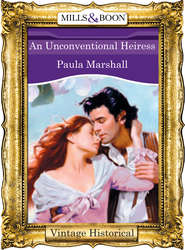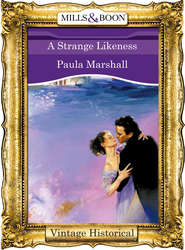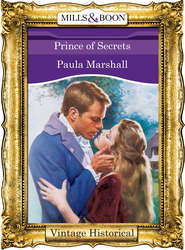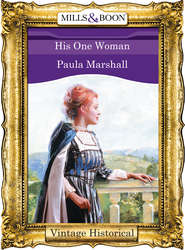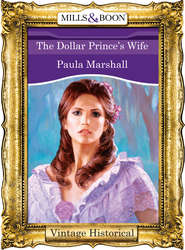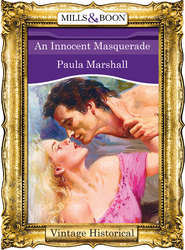По всем вопросам обращайтесь на: info@litportal.ru
(©) 2003-2024.
✖
Lord Hadleigh's Rebellion
Настройки чтения
Размер шрифта
Высота строк
Поля
‘No fuss,’ she trilled. ‘I will announce myself. You may leave us.’
Mary gave an inward groan. Of all the people in the world who had to interrupt her just when she had thought that she was about to solve the tricky problem of the knight’s move, this particular woman was the last she would have welcomed.
‘Lady Leominster,’ she said, rising. ‘Pray be seated. I quite understand that your fame is such that you need no announcing.’
The Lady chose to interpret this as a compliment.
‘Oh,’ she declaimed, ‘and I am sure that you will be delighted to have a short rest from your labours. I am, I own, a little surprised that you should frowst indoors on such a fine sunny day. But no matter, I have come to reprimand you, you naughty thing. It is a godmother’s privilege, after all. You so seldom go into society these days that you are in danger of becoming that strange thing, a female hermit. This will never do. To that end I have prevailed on my cousin Markham to invite you to his grand house-party next week.’
Mary’s expression was so mutinous that she raised her gloved hand. ‘No, do not refuse me. It is high time that you married again.’
She put her head on one side and studied Mary’s face as though it were a fine painting brought out for her to admire.
‘Quite lovely,’ she murmured. ‘Yes, quite lovely. With that complexion, those dark eyes and even darker hair, any man would be proud to call you wife. And your fortune, of course. We mustn’t forget that.’
How many more of society’s taboos could the old trout ignore or break? Wasn’t it enough that she had burst into the room without so much as a by your leave when Gibbs must have assured her that the mistress was not at home?
‘Yes,’ said the Lady, and then, as though issuing an order from on high, ‘Yes, of course, you must marry again. Thirty is not such a great age for a widow.’
‘Heaven forbid,’ exclaimed Mary and goodness, where had that come from? After all, her marriage to Dr Henry Wardour had not been an unhappy one, despite the great difference in their ages and that it had been arranged between him and her father and presented to her as a fait accompli.
‘Do admit that it must have been off-putting’ exclaimed her tormentor, ‘to marry an old fellow like Dean Wardour. I suppose that is why you feel condemned to carry on his work.’ She waved a disparaging hand at Mary’s pile of papers and the chessboard, having ignored another taboo—that one did not raise such intimate matters as the nature of a couple’s married life with one of the partners in it.
She was so determined to make her point that she leaned over and struck Mary smartly on her writing hand with her glove before continuing with increased vigour. ‘It’s all very well for an old codger to trouble himself with such abstruse matters as mathematics. A handsome young man would soon give you other things than that to think about. All the more reason, then, to accept the General’s invitation.’
The only reason which Mary could think of which would make her accept the invitation was that it might enable her to dismiss the old harpy sitting opposite to her so that she could get back to continuing her late husband’s work—which was also her work.
‘How long would I be expected to remain at Markham Hall? Not too long, I trust.’ If that grudging acceptance made her sound nearly as elderly as her late husband, then so be it. Fortunately it seemed to please the harpy if her crocodile’s smile was any guide. And there’s a couple of mixed metaphors which would have set my late husband grieving if he had heard me utter them!
‘My dear, I am up in the boughs, I do assure you. I will inform the General myself that you will be delighted to renew your acquaintance with him and dear Angelica. You do remember dear Angelica, don’t you?’
If dear Angelica was the girl who had sulked and moped her way through her come-out party, which Mary had unwillingly attended only after another session of bullying from the formidable lady opposite to her, then Mary remembered dear Angelica.
‘Oh, yes, Lady Leominster. Of course I remember her.’
Who, indeed, could forget her tantrums? One could only pity the unfortunate man who might lead her to the altar. Fortunately again, the Lady took her utterance at face value, leaving Mary to regret being such a cat when thinking about, and speaking to, others, but happy that she was able to disguise her true feelings.
Her reward was a smacking kiss from the Lady, who rose and announced dramatically that she was off to persuade—by which she meant bully—her niece Phoebe Carstairs to visit Markham Hall as well. ‘Another gel who does not know what’s best for her,’ she sighed.
If I knew what was best for me, then I wouldn’t even consider putting a foot in Markham Hall, let alone visit it, was Mary’s rebellious thought before resuming her work with a brain that was now more concerned with how she was to endure a week of total inanity when she might be enjoying herself by finally getting this confounded white knight to behave itself.
The black knight had been much more obliging.
Chapter One
Markham Hall was a truly beautiful building. It dated back to early Tudor times and was a dream of rich crimson and gold bricks and mellowed stone. All the later improvements, designed to increase the comfort of the family and the family’s guests, had been added at the back so as not to spoil the illusion that the Hall was still an Early Tudor fortress that had been transformed into a mansion.
It was said that good Queen Bess had lived here for a short time when her Catholic sister Mary had been on the throne, but no proof of this had ever been offered except a contemporary portrait of her as a young woman which hung in a prominent place in the Great Hall.
A large number of visitors were arriving that late April afternoon. There were several carriages on the gravel sweep before the main doorway, which was actually a gate which opened on to a quadrangle around which the original house had been built. A bevy of footmen, grooms, coachmen and various servants were carrying luggage into the Hall.
Two footmen, one of them carrying a large green umbrella, ran forward to greet Mary’s driver and to open the door of her chaise for her so that she might descend and be escorted indoors, together with her maid, Jennie, and her companion, Miss Eliza Truman, away from the light rain which had begun to fall.
Inside all was beauty and comfort. Mary’s suite of rooms overlooked the rolling countryside where a folly in the shape of a ruined miniature tower stood high on a hill. Peter’s Place, it was called, after a fabulous huntsman who had run with the Quorn Hunt, Leicestershire’s pride, two hundred years ago.
Mary had scarcely time to change out of her travelling clothes into a light mauve gown and settle herself on the sofa in her little withdrawing room before the butler and a footman arrived with the tea-board.
‘Lady Markham thought that you might care for some refreshment after your journey from Oxford. We dine late here in the Great Hall. The General likes to call it supper. The family and the guests assemble in the Stuart room at the sounding of the first bell and meet to converse before the meal.’
‘Very civilised,’ murmured Mary, eyeing the teapot and the biscuits known as Bosworth Jumbles.
The butler bowed. ‘The General and his Lady send word that they hope that you will enjoy your first visit to Markham Hall. They are looking forward to meeting you again. Should any of your wants remain unsatisfied, then you have only to ring for the housekeeper, Mrs Marsden, and she will look after you.’
‘Well,’ said Miss Truman when the butler had bowed himself out, ‘I have encountered less state when my late patron visited royalty. The tea, however, is most welcome.’
Mary had forgotten what visiting her wealthy contemporaries was like. She was not sure that she wished to live a life of such formality, if only for a fortnight. She had brought her work with her, but doubted whether she would ever find time to solve the latest problem which she had encountered. Her companion, though, obviously revelled in being waited upon so assiduously, suggesting that they might ring the housekeeper for more hot water when they had drunk their first cup.
The rain outside had stopped and the sun was shining. Mary said, ‘Do so, by all means, but I should wish to take a walk in the grounds. If you wish to rest after our journey, there is no necessity for you to accompany me.’
‘At least take your maid with you. It will be expected.’
Mary sighed. Peace and quiet was all that she wanted. ‘Indeed, no,’ she replied gently. ‘I am sure that I shall be perfectly safe.’
‘But who will carry your umbrella?’
‘Why, I shall. Now, will you please excuse me? I shall not be long.’
Her umbrella in her hand, a short jacket over her dress, Mary made her way downstairs and out into the open after asking a somewhat surprised footman the best way into the gardens. He escorted her to a large door at the back. One path from it led to the stables, another to a series of formal gardens before taking a sharp turn into the Park itself.
The gardens had been improved during the last century, almost certainly by Capability Brown, Mary decided, before she ventured into the Park where she admired in turn the ornamental bridges, the artfully placed stands of trees, and the lake and its miniature stone quay where two small pleasure boats were moored.
Mary was compelled to admit that everything she saw pleased her, particularly the fact that she was the only person present to admire the unfolding vistas which Brown had so carefully devised. The scene before her was so beautiful that she began to wish that she had not left her sketchbook and water-colour paints at home. For a time she sat on a rustic bench placed exactly where the view before her was at its most lovely, and it was with a sigh that she rose and returned to the Hall.
A different route back through the formal gardens seemed a good idea until she heard men’s voices coming from one of them when she approached the trellised archway which led into it. She was about to turn and retrace her steps in order to avoid them when she heard a voice which memory told her was familiar.
No! It could not be him! It could not!
He spoke again, and laughed at the end of a remark which set the rest of those present laughing, and this time she was sure that she recognised the voice of the man who had made it. Whatever the cost she must find out if her supposition was correct so that she might be prepared when she met him later at dinner. To have come upon him without warning would have challenged even her own calm self-control which was legendary among those who knew her.
She moved forward in order to look into the enclosed garden so that she might see the company assembled there, but not be seen by them. And yes, it was indeed Russell Hadleigh whom she thought that she had heard, whose pleasant baritone voice she had immediately recognised, even though it had been thirteen years since she had last listened to him speaking.
He was seated among a group of young men before an iron table on which stood, not tea, but bottles of port, Madeira and white wine. Unbuttoned might be the best word to describe them all, including Russell, Mary thought wryly, especially, perhaps, Russell. She also recognised Peregrine Markham, her host’s son and heir, but the other young bloods were unknown to her. It was, perhaps, fortunate, she thought later, that she was not near enough to hear what they were saying—which, judging by the nature of their laughter, was not very proper.
Peregrine Markham suddenly stood up, which set her moving away before she could be seen and recognised. She had no wish to speak to any of them, let alone Russell Hadleigh, before she had had time to compose herself. Indeed, how she made her way safely back to her room she never knew, her brain was in such a whirl.
Mary had hoped never to see him again, and had she known that he, too, was going to be a visitor at Markham Hall, she would never have given in to Lady Leominster’s bullying and agreed to go there. By great good luck, though, seeing him without his being aware of her presence meant that she could prepare herself for the inevitable moment when they would meet before dinner. It was essential that he should not know how much the mere sight of him still had the power to disturb her.
The disturbance was, of course, ridiculous. How could his betrayal of her thirteen years ago still have the power to upset her? Worse than that, how could the mere glimpse of him set her heart beating so rapidly as though it were only a day since he had last walked away from her after giving her such a loving kiss?






